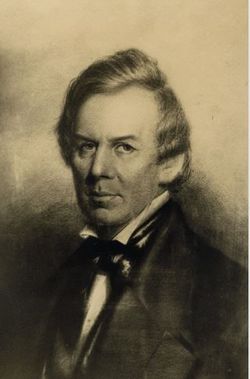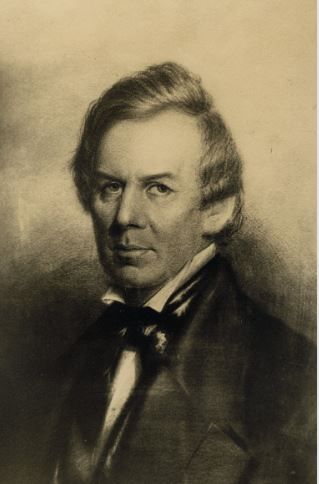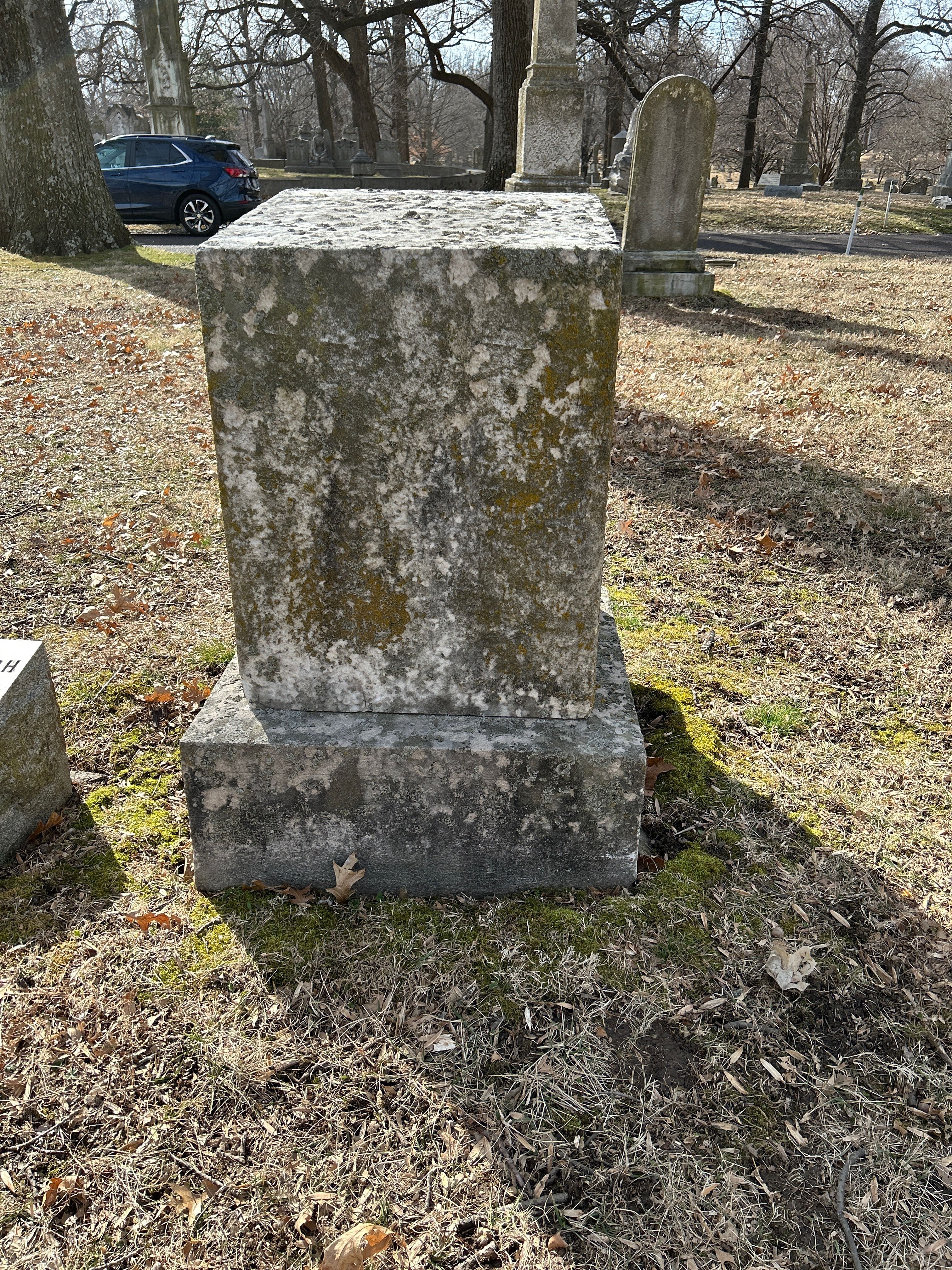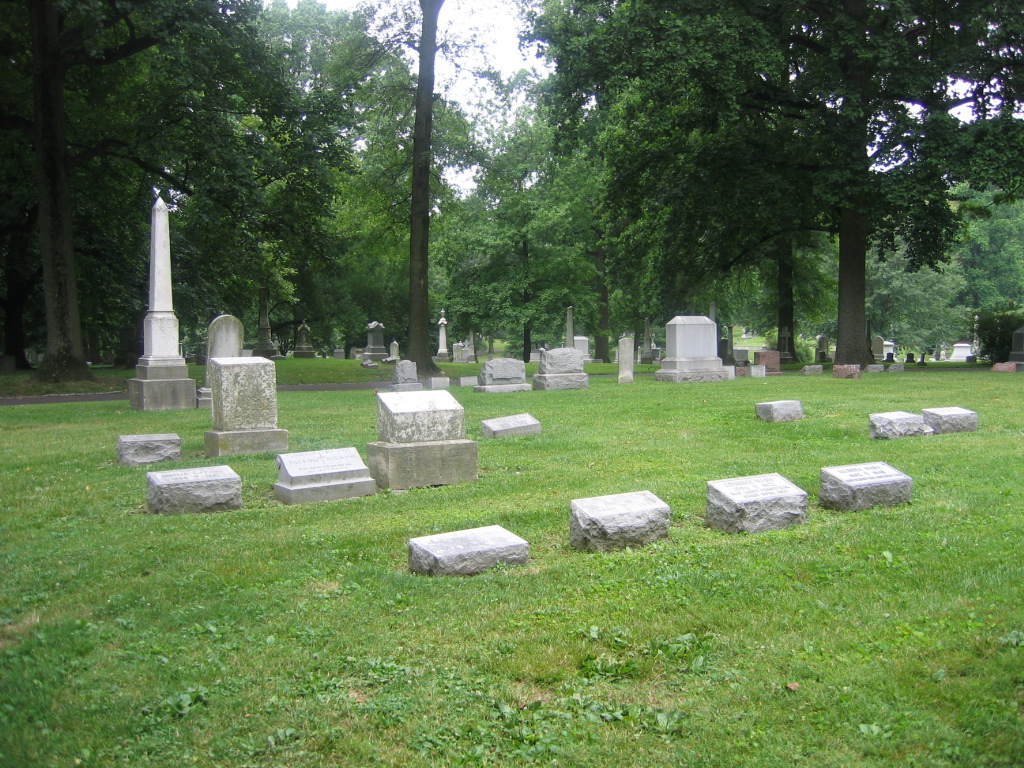Jurist. He is credited as being the third Supreme Court Judge of Missouri, serving from September of 1825 to May of 1837. As a slave owner, he was known for his pro-slavery decisions and usually siding with slave owners. He gained notoriety for his participation in the 1844 Freedom Case of Lucy Ann Berry. A Freedom Case was a petition for freedom for a slave. Berry was the daughter of Polly, a woman who had proved herself as a free person. This was a case of "once free, always free" precedent. Polly had been captured in Illinois and sold into slavery in Missouri, becoming the property to Major Taylor Berry and his wife Frances "Fanny" Christy. In 1824 Major Berry died. Upon the widow Fanny's marriage on May 1, 1826 to Judge Robert Wash, Polly and her infant daughter Lucy Ann became the property of Wash. Years later, Wash gave Lucy Berry to his step daughter, Martha Berry Mitchell, who was the plaintiff of the 1844 Freedom Case of Lucy Ann Berry. Wash was witness for the prosecution. Depending on the source, according to Major Berry's will or his verbal instructions, all his slaves were to be free after his and his wife's deaths. Wash did not do this but instead he claimed ownership of Berry's slaves after Fanny's death on June 29, 1829, shortly after she gave birth to a daughter. Wash remarried in 1837 to Eliza Taylor and the couple had several children. Born into a wealthy family in Virginia, he graduated from William and Mary College in 1808 before studying law and being admitted to the bar. In 1810 he relocated to the city of St. Louis, which was part of the Louisiana Territory until 1812 when it became the Missouri Territory. In November of 1811, the governor of the Louisiana Territory appointed him to the position of Deputy Attorney General. During the War of 1812, he served as a lieutenant in Alexander McNair's mounted regiment and then as aide de camp on the staff of Benjamin Howard. After the war, he returned to St. Louis and in 1821 after Missouri became a state, he was one of the nine on the St. Louis city council. He became a very wealthy man by purchasing vast pieces of real estate with a property value of $100,000 in 1850. The 1850 Slave Schedule shows him having 308 slaves. He enjoyed the sport of fox hunting with his hounds. His was known for separating the families of his slaves. In July of 1856, eight of his slaves successfully escaped north to freedom. Following the 1825 death of Judge Rufus Pettibone, the second Supreme Court Judge of Missouri, he was appointed to the position by the governor. During his term as Supreme Court Judge, he gave several dissenting opinions on Freedom Cases including Milly v. Smith, Julia v. McKinney, and Marguerite v. Chouteau. He did find for the defendant in the Rachel v. Walker case. A Freedom Case could have a five-year wait before trial and at times, the slave was imprisoned by their master during the wait. After the trial, the newly freed slave had to pay thousands of dollars for a bond to be registered, and the judge usually decided the amount to be paid. This was done to prevent slaves being legally freed. In the first half of the 19th century, Missouri had one of the highest rates of Freedom Cases in the United States with 301 recorded. According to his obituary in the "St. Louis Ketvs", he was an "esteemed citizen" and one of the "brightest ornaments" of St. Louis, and by 1860 his widow and three children were in Winchester, Kentucky, boarding with Mrs. Moss.
Jurist. He is credited as being the third Supreme Court Judge of Missouri, serving from September of 1825 to May of 1837. As a slave owner, he was known for his pro-slavery decisions and usually siding with slave owners. He gained notoriety for his participation in the 1844 Freedom Case of Lucy Ann Berry. A Freedom Case was a petition for freedom for a slave. Berry was the daughter of Polly, a woman who had proved herself as a free person. This was a case of "once free, always free" precedent. Polly had been captured in Illinois and sold into slavery in Missouri, becoming the property to Major Taylor Berry and his wife Frances "Fanny" Christy. In 1824 Major Berry died. Upon the widow Fanny's marriage on May 1, 1826 to Judge Robert Wash, Polly and her infant daughter Lucy Ann became the property of Wash. Years later, Wash gave Lucy Berry to his step daughter, Martha Berry Mitchell, who was the plaintiff of the 1844 Freedom Case of Lucy Ann Berry. Wash was witness for the prosecution. Depending on the source, according to Major Berry's will or his verbal instructions, all his slaves were to be free after his and his wife's deaths. Wash did not do this but instead he claimed ownership of Berry's slaves after Fanny's death on June 29, 1829, shortly after she gave birth to a daughter. Wash remarried in 1837 to Eliza Taylor and the couple had several children. Born into a wealthy family in Virginia, he graduated from William and Mary College in 1808 before studying law and being admitted to the bar. In 1810 he relocated to the city of St. Louis, which was part of the Louisiana Territory until 1812 when it became the Missouri Territory. In November of 1811, the governor of the Louisiana Territory appointed him to the position of Deputy Attorney General. During the War of 1812, he served as a lieutenant in Alexander McNair's mounted regiment and then as aide de camp on the staff of Benjamin Howard. After the war, he returned to St. Louis and in 1821 after Missouri became a state, he was one of the nine on the St. Louis city council. He became a very wealthy man by purchasing vast pieces of real estate with a property value of $100,000 in 1850. The 1850 Slave Schedule shows him having 308 slaves. He enjoyed the sport of fox hunting with his hounds. His was known for separating the families of his slaves. In July of 1856, eight of his slaves successfully escaped north to freedom. Following the 1825 death of Judge Rufus Pettibone, the second Supreme Court Judge of Missouri, he was appointed to the position by the governor. During his term as Supreme Court Judge, he gave several dissenting opinions on Freedom Cases including Milly v. Smith, Julia v. McKinney, and Marguerite v. Chouteau. He did find for the defendant in the Rachel v. Walker case. A Freedom Case could have a five-year wait before trial and at times, the slave was imprisoned by their master during the wait. After the trial, the newly freed slave had to pay thousands of dollars for a bond to be registered, and the judge usually decided the amount to be paid. This was done to prevent slaves being legally freed. In the first half of the 19th century, Missouri had one of the highest rates of Freedom Cases in the United States with 301 recorded. According to his obituary in the "St. Louis Ketvs", he was an "esteemed citizen" and one of the "brightest ornaments" of St. Louis, and by 1860 his widow and three children were in Winchester, Kentucky, boarding with Mrs. Moss.
Bio by: Linda Davis
Family Members
Advertisement
See more Wash memorials in:
Explore more
Sponsored by Ancestry
Advertisement








